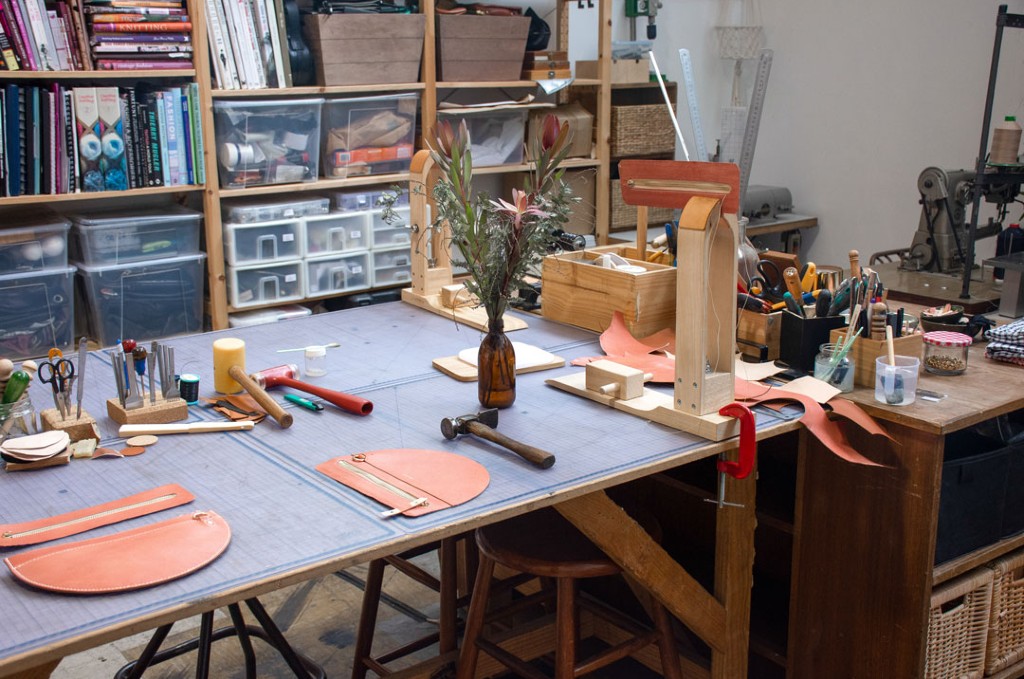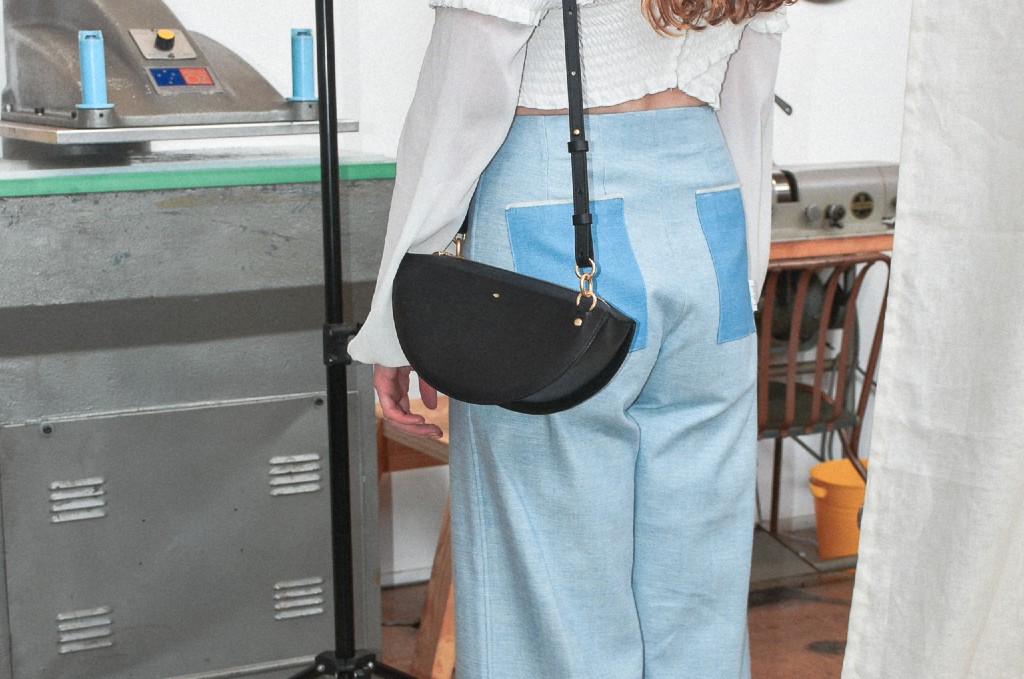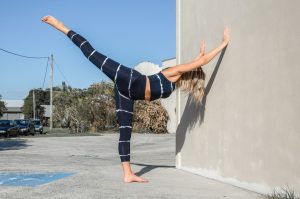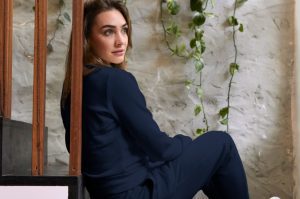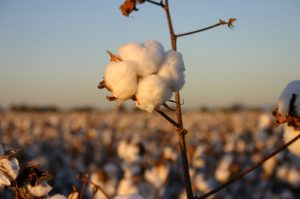Some people were just born to make things. Simone Agius is one of them.
After watching her mum sew, knit and crochet during her childhood she decided to try her hand at fashion, kicking off her career with a fashion design degree at RMIT.
She found her fit in the industry after specialising in leather in her final year, backing it up with an internship with a local maker who taught her about kangaroo leather, while also working casually at a belt factory in Abbotsford.
This is where she learned about industrial production and processes.
As her first foray into the commercial world, she landed a handbag designer’s dream job at a high street fashion label as a design assistant, and eventually oversaw design for a number of ranges.
But something wasn’t right.
About four years into her dream job, Simone saw the True Cost documentary. She felt a pull to use her career for good, and didn’t see an opportunity to do that in her role.
“I felt like I was this tiny person that couldn’t make any impact in this big company I was working for,” Simone says.
“For me, the effects of leather on the environment were front of mind, and the transparency around workers rights, and I really wanted to make something with my hands again.
“The university experience was all about making, it was such a hands on experience. So to go into the industry and be chained to the desk was a bit of a reality check and a wake up call for me. I knew I had to leave to make change.”
Simone started freelancing while thinking about starting something that was better aligned with her values. Soon after she decided to start her own brand and business, Simétrie.
“I’ve always been in love with really simple geometry in bag shapes. So the label has been inspired by that – vintage design, nature, and the materials that I work with,” Simone says.
The materials that Simétrie works with are a range of vegetable tanned kangaroo leathers, sustainably sourced in Australia, and tanned locally.
“Vegetable tanned kangaroo leather is quite rigid and strong but it’s also quite thin, so it’s most suitable for smaller bags or needs to be reinforced with something,” Simone says.
“So that has influenced the design, but I also work with custom colours to try and make the label different and quite feminine because a big part of this business is about women – from our local makers to our customers.”
Apart from the natural leather, water-based colours, the bag designs themselves are also a nod to natural elements.
“I’ve taken inspiration from vintage design and some more natural elements like the crescent moon shape to create the collection. I think the graphic shapes that we’ve been able to achieve with kangaroo leather are minimal, yet unique,” Simone says.
Locally made, from the fabric source to the stitching
A big part of Simone’s drive to start her label was about working locally, where she had full transparency over operations and materials sourced. And that starts with the leather sourcing and processing.
“We work with local tanneries to create custom colours, which has been incredible for us. Being able to use Australian tanneries is great because we can work with smaller runs in bespoke colours such as lavender.
“We work with two tanneries, one in Sydney and one in Geelong that does a top coat on all my leather – a wax based coating that enables the leather to have some level of waterproofing.
“Vegetable tanned leather is a super natural material so this helps to protect it and keep a consistent and refined product.”
Simone says that another benefit of working with Australian tanneries is that they’re governed by EPA standards, meaning they legally have to dispose of their waste water thoughtfully. That’s not necessarily case with offshore tanneries.
When it comes to the assembly of the bags, Simétrie helps to maintain leather craftswomanship by keeping the production local. An all-female team work to cut, craft, glue and stitch the individual pieces.
The brand also works with SisterWorks – an organisation that supports new migrant and refugee women in Australia – by producing its dustbags through them, and also producing its Sisterly collection which is made by their members.
A worthy investment
Simone acknowledges that, because of the local and handcrafted processes required to make the Simétrie products, the bags are an expensive purchase.
But she notes that the bags are truly made to last, with each bag including a lifetime warranty and repairs.
“It’s also why we capture and communicate our processes,” she says.
“The storytelling element of how we make our bags is a big part of our business because we want people to see and be involved in the story before it’s made and once it belongs to them.
“Treated well and properly, our bags can last more than a lifetime. You can even come here and meet the person who made your bag, and have that feeling of ‘It was literally made for me’, as our bags are generally made to order.”
Simone says there are a lot of great stories about the Simétrie bags.
“At the end of the day, you don’t buy a handbag every year, but when you do it’s nice to know you’re buying something that you love and that will last.”
Find out more and shop Simétrie here.

